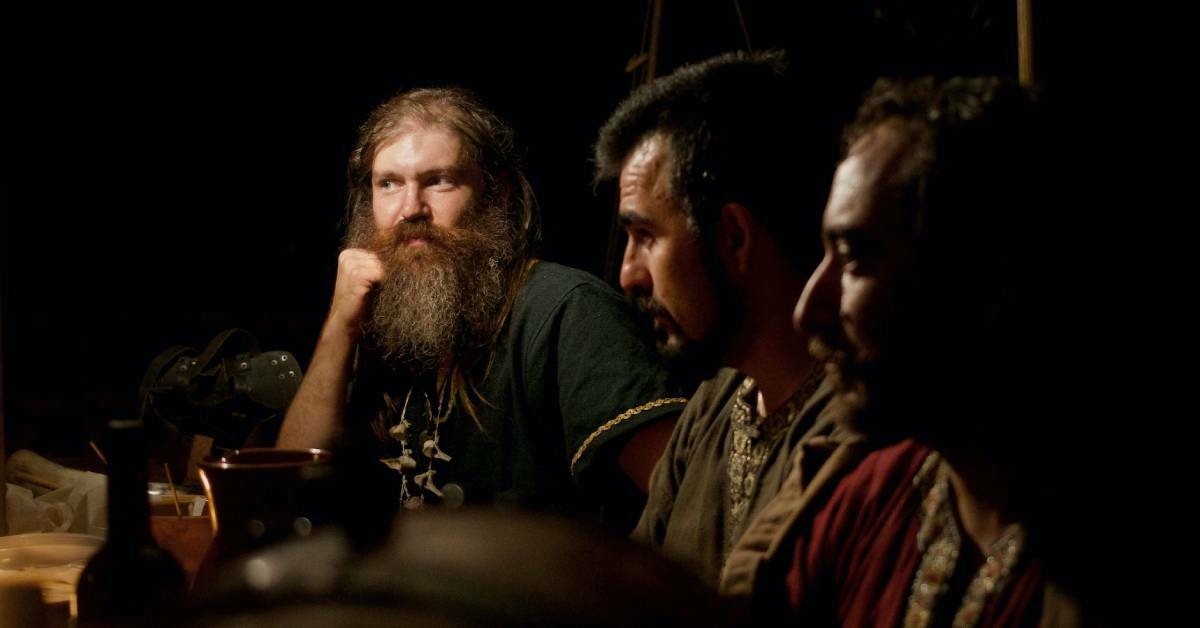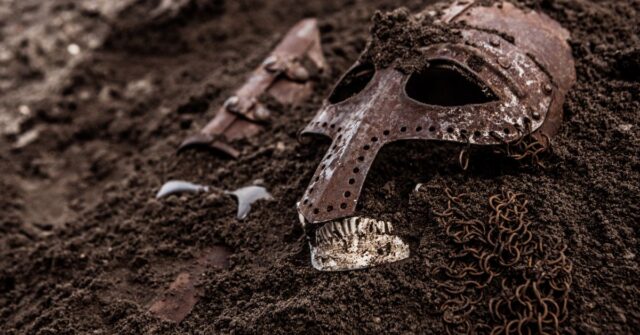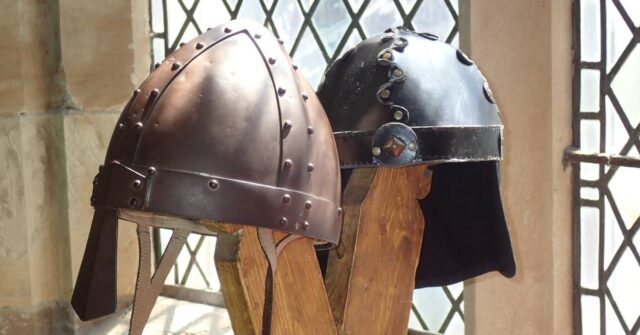The Vikings, renowned for their daring sea voyages and martial prowess, also had a rich culture that extolled hospitality and gift-giving.
These practices played a crucial role in their social fabric, fostering bonds, upholding honour, and maintaining societal harmony. This article explores the importance of these two aspects in Viking society and their lasting legacy.
Introduction: Understanding the Viking Culture
The Viking Age, spanning from 793 to 1066 AD, was a period of profound cultural evolution in Scandinavia.
While the Vikings are often depicted as fierce warriors, their culture was multi-faceted, encompassing a sophisticated system of laws, deep-rooted spiritual beliefs, and complex social norms.
To fully appreciate the significance of hospitality and gift-giving, it is essential to delve into this rich cultural tapestry.
The Viking Ethos
The Vikings lived by a strong set of values and norms that governed their everyday life, from their personal conduct to their social interactions. This ethos played a pivotal role in shaping their attitudes towards hospitality and gift-giving.
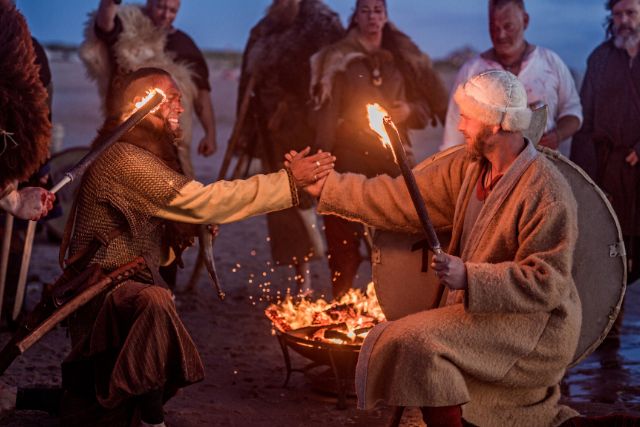

The Warrior Code
Central to Viking culture was the warrior code, a set of principles that underpinned their martial society. Honour, courage, loyalty, and generosity were esteemed virtues.
The practice of hospitality and gift-giving was deeply intertwined with these values, serving as tangible demonstrations of respect, allegiance, and magnanimity.
Values and Beliefs
Beyond the warrior code, Vikings held a deep belief in fate and the capricious nature of the gods. They believed that their actions could influence their fate, and this belief permeated their practices of hospitality and gift-giving.
These acts were seen not just as social responsibilities, but also as means to curry favour with the gods and secure a favourable fate.
The Importance of Hospitality in Viking Culture
Hospitality was a cornerstone of Viking society. The harsh climate and sparse population made survival difficult, necessitating cooperation and mutual support. Thus, hospitality became not only a social norm but a matter of survival.
The Laws of Hospitality
From the sagas and law codes, it is evident that Vikings had a formalized system of hospitality. The host was expected to provide food, drink, and shelter, while the guest had to show respect and gratitude.
These rules ensured that the guest-host relationship was maintained harmoniously, underpinning the social fabric of Viking society.
Penalties for Violating Hospitality Norms
Violating the hospitality norms was considered a grave offense in Viking society. This could lead to social ostracism, legal penalties, or even violent retribution. Such severe repercussions underscored the high value placed on hospitality in Viking culture.
Role of Hospitality in Strengthening Bonds
Hospitality served as an important avenue for building and strengthening social bonds. By welcoming guests into their homes, Vikings established alliances, made political connections, and fostered friendships.
This practice reinforced social cohesion and played a vital role in maintaining societal harmony.
Interpretation of Hospitality through Norse Mythology
Norse mythology, rich with tales of gods and heroes, often depicted acts of hospitality, providing a divine endorsement to this social practice.
Stories Reflecting Hospitality
Many Norse myths highlight the virtues of hospitality. For instance, in the Saga of Hávamál, Odin, disguised as a wanderer, visits various homes, and the manner in which he is received often determines the blessings or curses he bestows.
This story, among others, underscores the importance of good hospitality in Norse belief systems.


Gods and Hospitality
The gods themselves were often depicted as hosts or guests in the myths. For example, Aegir, the god of the sea, was known for his lavish feasts for the gods. This divine example further instilled the importance of hospitality in the Viking ethos.
The Significance of Gift-Giving in Viking Society
Gift-giving was another integral part of Viking society, serving as a powerful tool for social maneuvering. It was a way of displaying wealth, establishing alliances, securing loyalty, and showing appreciation or affection.
Gift-Giving as a Social Obligation
In Viking society, gift-giving was seen as a social obligation rather than a voluntary act. It was a reciprocal process where the giving and receiving of gifts created mutual obligations.
This practice played a crucial role in maintaining social order and harmony.
Gift-Giving in Political Context
Gift-giving was often used as a political strategy among the Vikings. Leaders would bestow gifts to their followers to ensure their loyalty and service. Similarly, gifts were given to foreign dignitaries to foster alliances and diplomatic relations.
The Exchange of Weapons and Armor
Weapons and armour were among the most prized gifts in Viking society. The gifting of such items was a powerful symbol of trust and respect. It not only signified the recipient’s valor but also their responsibility to protect the community.


Gift-Giving in Marriages and Births
Gift-giving played a significant role in major life events such as marriages and births. Dowries, bridal gifts, and birth gifts were important traditions that reinforced family bonds and social alliances.
Gift-Giving and Its Links to Norse Mythology
The practice of gift-giving was also deeply embedded in Norse mythology, with several tales illustrating the power and significance of gifts.
The Mead of Poetry: A Divine Gift
The tale of the Mead of Poetry exemplifies the significance of gifts in the Norse myths. This divine mead, crafted from the blood of a wise being, was a coveted gift that bestowed the gift of poetry and wisdom on its drinker.
Gifts from the Gods: Mythical Artifacts
Norse mythology is replete with stories of gods bestowing gifts upon mortals and other gods. These gifts, often in the form of powerful artifacts, signified favour, forged alliances, or rewarded heroic deeds, mirroring the social practices of the Vikings.
The Influence of Hospitality and Gift-Giving on Viking Law and Governance
Hospitality and gift-giving were not just social practices but also influenced Viking law and governance. They served as a kind of social contract, regulating behaviour and maintaining societal order.
Legal Implications of Hospitality and Gift-Giving
Violating the norms of hospitality or gift-giving could have legal implications in Viking society. Laws were in place to penalize those who failed to honour their obligations, reinforcing the societal importance of these practices.
Gift-Giving and Leadership
Gift-giving was a significant aspect of leadership in Viking society. Leaders were expected to be generous to maintain their status and ensure the loyalty of their followers.
This practice not only solidified their position but also fostered a sense of unity and cohesion within the community.
Impacts of Viking Hospitality and Gift-Giving on Modern Scandinavian Culture
The practices of hospitality and gift-giving continue to shape modern Scandinavian culture, reflecting the enduring legacy of Viking traditions.
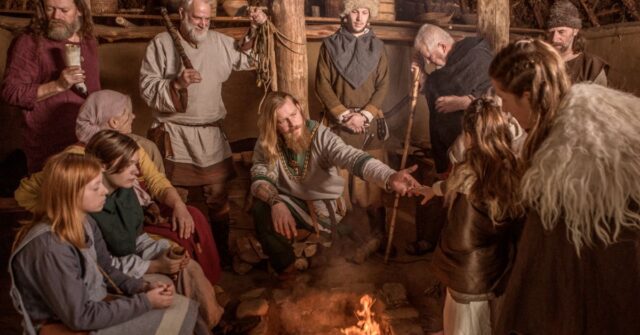

Continued Traditions
Today, hospitality remains a cornerstone of Scandinavian societies, reflected in their ‘open door’ policies and the importance placed on social gatherings.
Similarly, gift-giving remains an integral part of celebrations and social interactions, maintaining its role as a medium for expressing respect, gratitude, and affection.
Modern Interpretations and Practices
While the form and context have evolved, the underlying principles of Viking hospitality and gift-giving continue to resonate in modern practices.
For instance, the Scandinavian concept of ‘hygge’, which promotes comfort and togetherness, mirrors the Viking emphasis on communal harmony and hospitality.
Conclusion: The Lasting Legacy of Viking Hospitality and Gift-Giving
Hospitality and gift-giving were more than mere social conventions in Viking society – they were deeply ingrained cultural practices that fostered social cohesion, upheld societal norms, and ensured survival in a harsh environment.
These practices, rooted in their belief system and codified in their laws, have left an enduring legacy, influencing the social dynamics of modern Scandinavian societies.
The Vikings may be long gone, but their spirit of hospitality and generosity continues to thrive.

